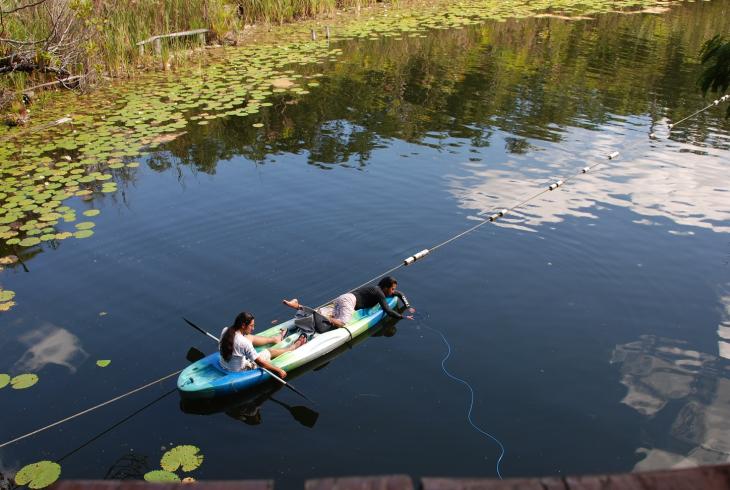
Cenotes are very particular systems, made up from the dissolution of calcareous material (karst), characteristic from the Yucatán peninsula (México). As part of the cooperation between the EFPU and the Universidad Autónoma de México, we studied the responses to global change of phytoplankton communities from clear and turbid cenotes. An increase in 3°C, as expected in the future, gave different responses in the cenotes studied: In the turbid cenote (Leona Vicario), this increase in temperature reduced the inhibitory effects of ultraviolet radiation (UVR) on photosynthesis (antagonistic effect among the two variables) whereas in the clear cenote (Las Mojarras) it potentiated such effects (synergistic effects).
The article was published in the journal Freshwater Science (link to publisher’s page)
Complete reference
Funding
This work was supported by Consejo Nacional de Investigaciones Científicas y Técnicas – Consejo Nacional de Ciencia y Tecnología (CONACyT) (International Cooperation Argentina – México), Agencia Nacional de Promoción Científica y Tecnológica, and Fundación Playa Unión.